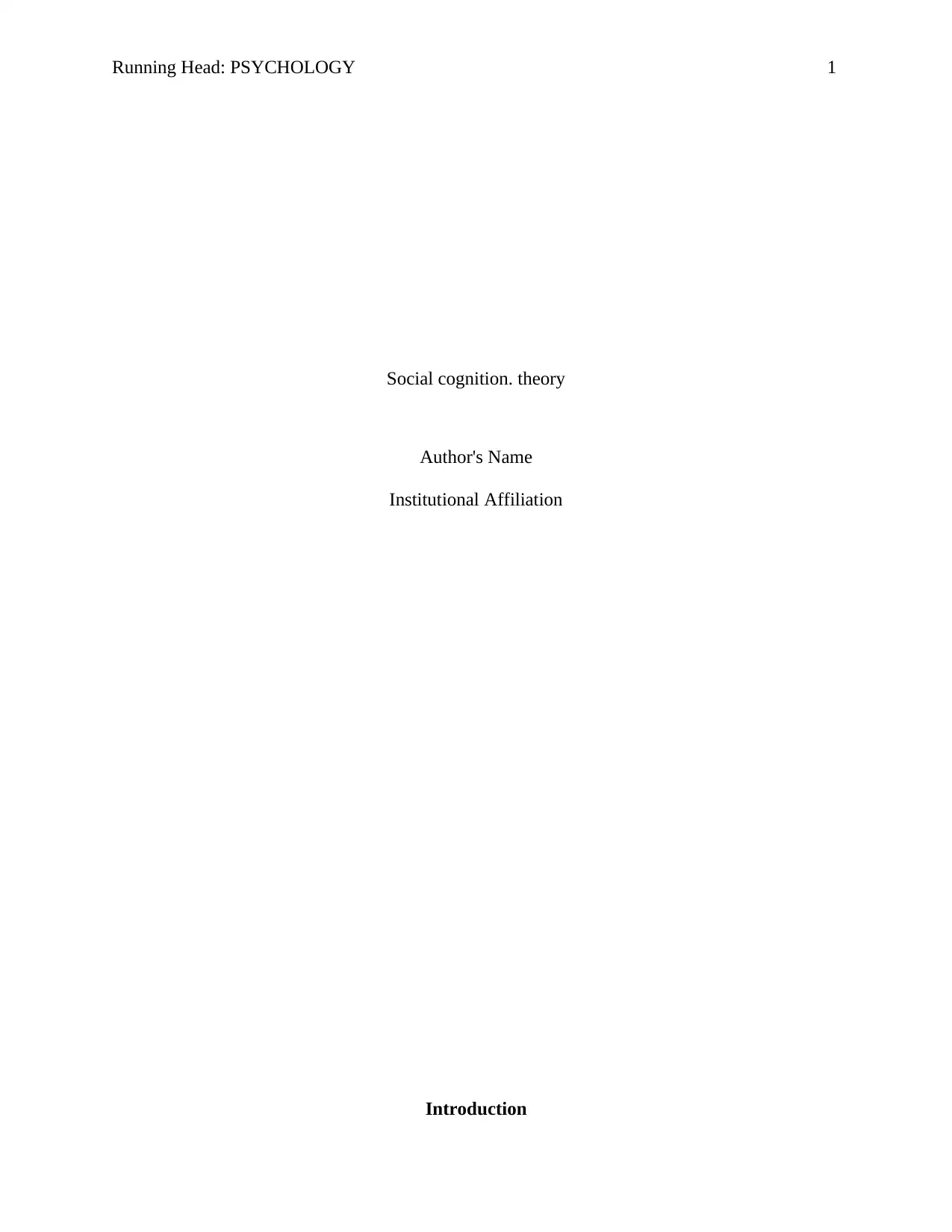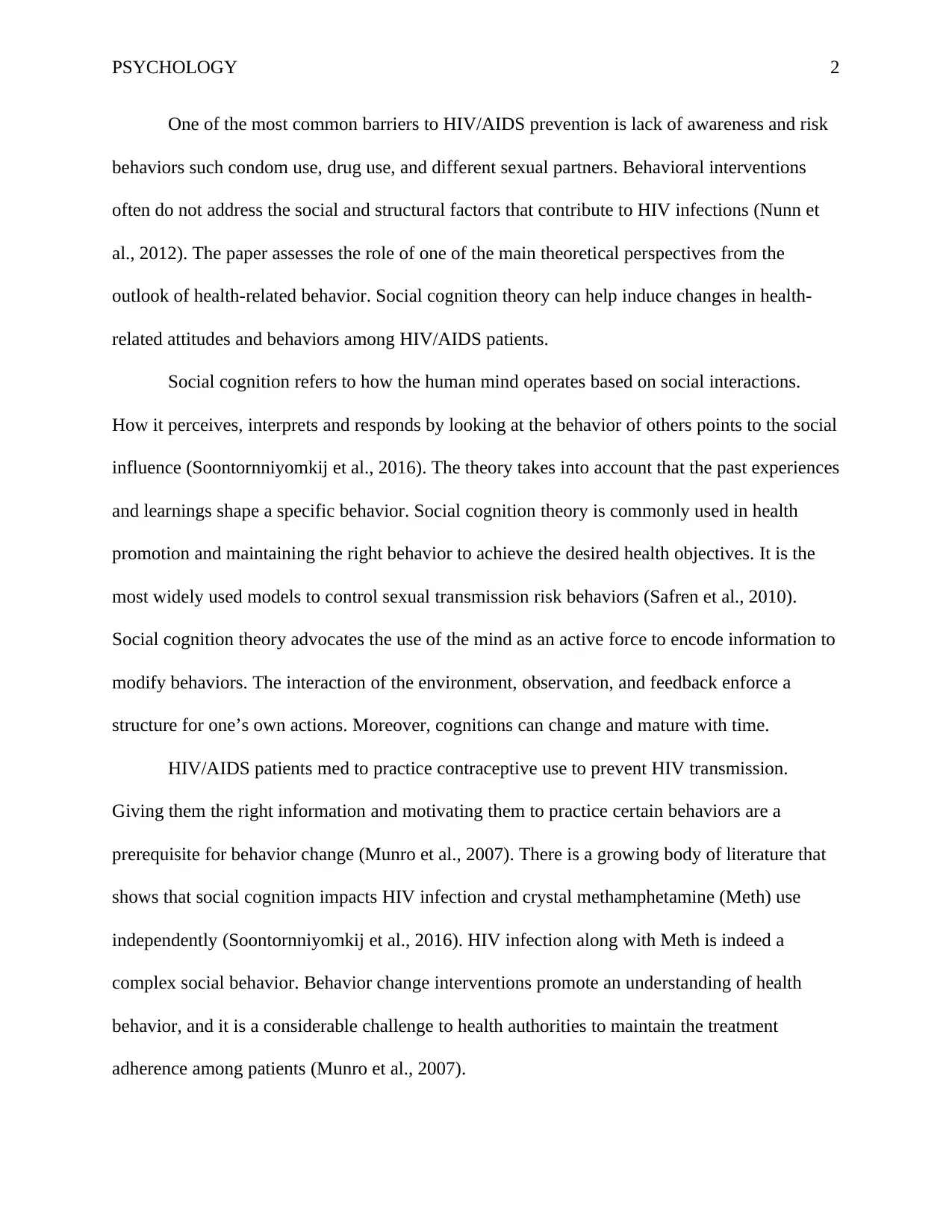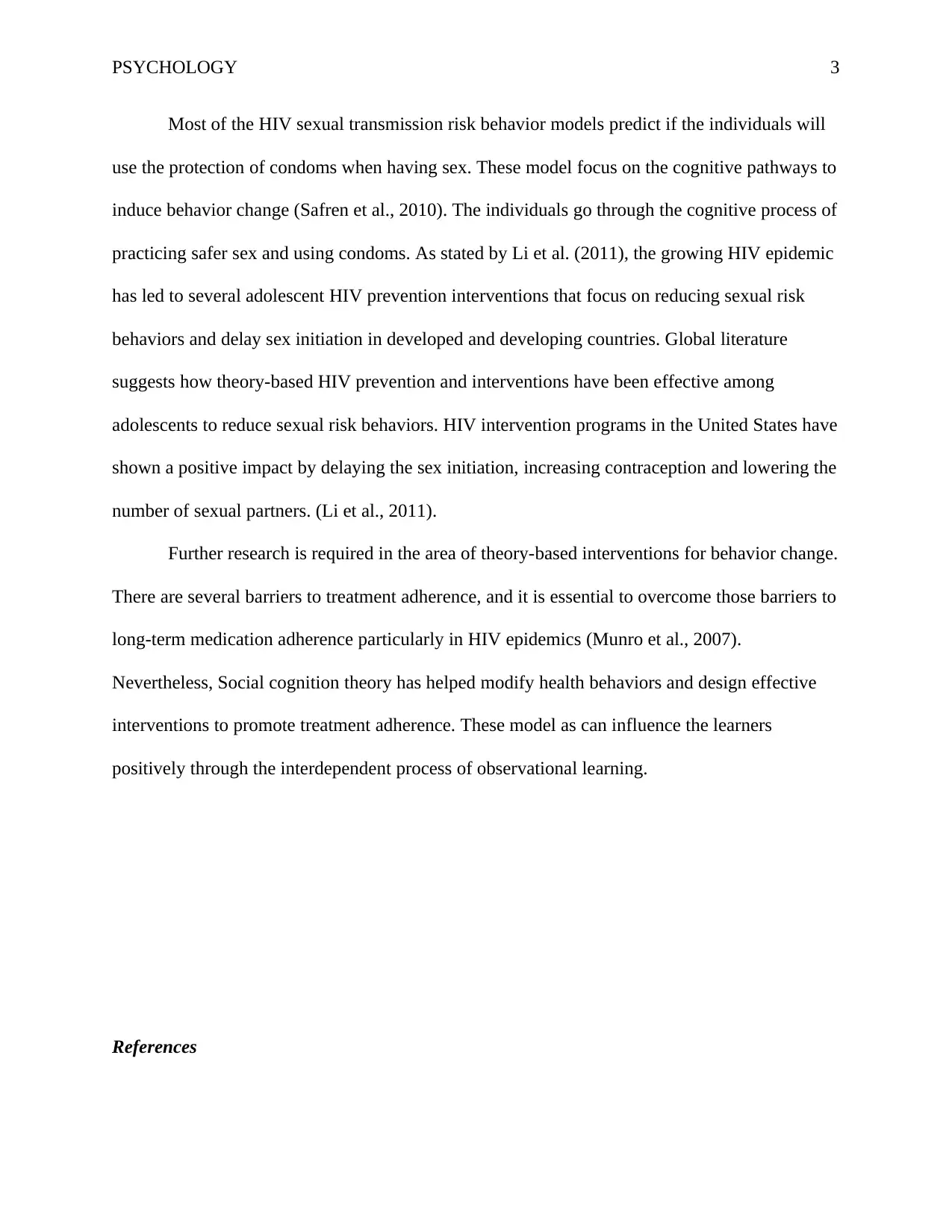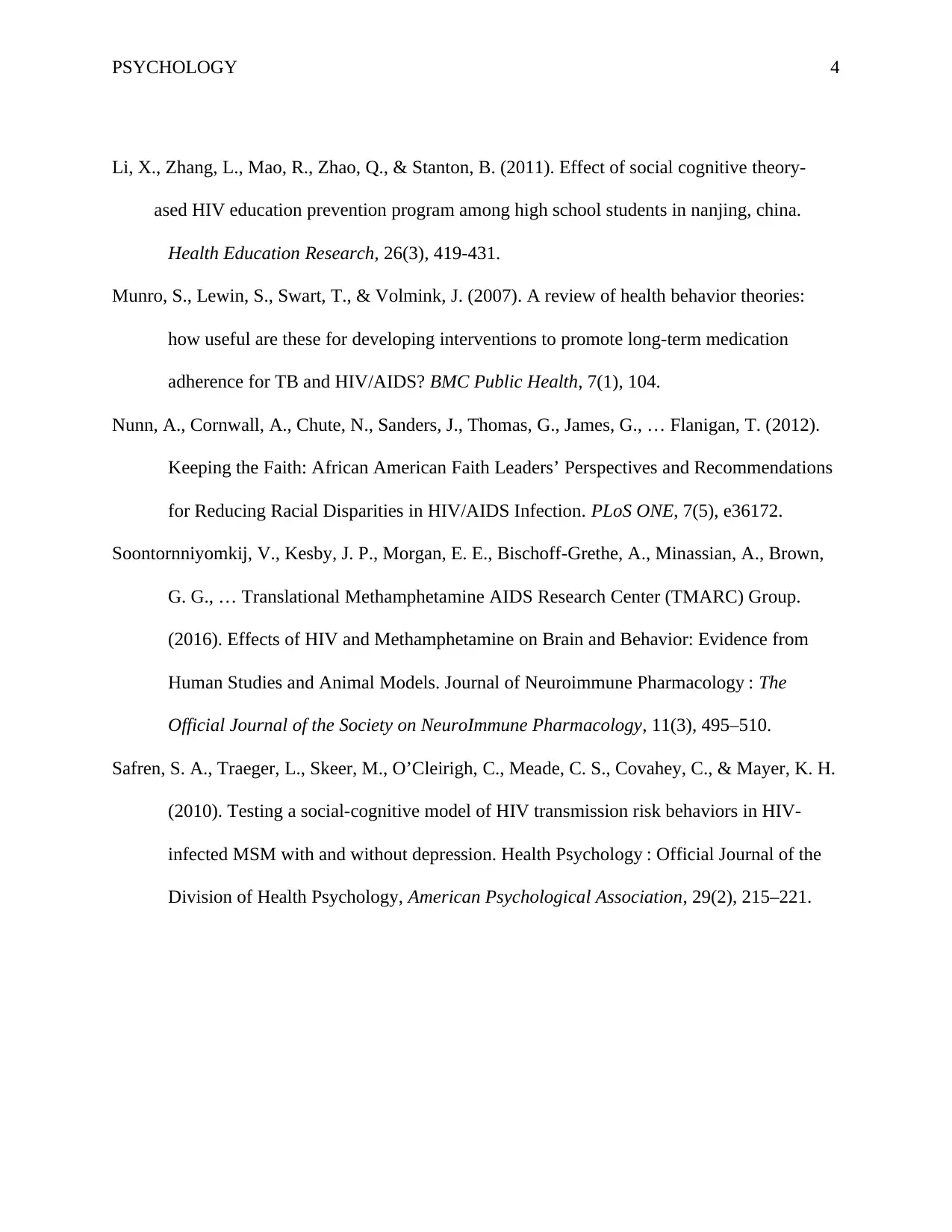The Role of Social Cognition Theory in Addressing HIV/AIDS Prevention
VerifiedAdded on 2023/06/05
|4
|938
|385
Essay
AI Summary
This essay examines the application of social cognition theory in addressing health-related behaviors, particularly in the context of HIV/AIDS prevention. It highlights how social cognition, which involves understanding how the mind operates based on social interactions, can be leveraged to induce changes in health-related attitudes and behaviors. The essay discusses the importance of providing the right information and motivation to HIV/AIDS patients to encourage behaviors such as contraceptive use, which are crucial for preventing HIV transmission. It also references existing literature that demonstrates the impact of social cognition on HIV infection and substance use, emphasizing the need for effective interventions to promote treatment adherence and reduce sexual risk behaviors. The role of observational learning and cognitive pathways in adopting safer sex practices is also explored, emphasizing the potential of theory-based interventions in achieving positive health outcomes. Desklib offers this document along with a wealth of study tools to aid students in their academic pursuits.
1 out of 4











![[object Object]](/_next/static/media/star-bottom.7253800d.svg)